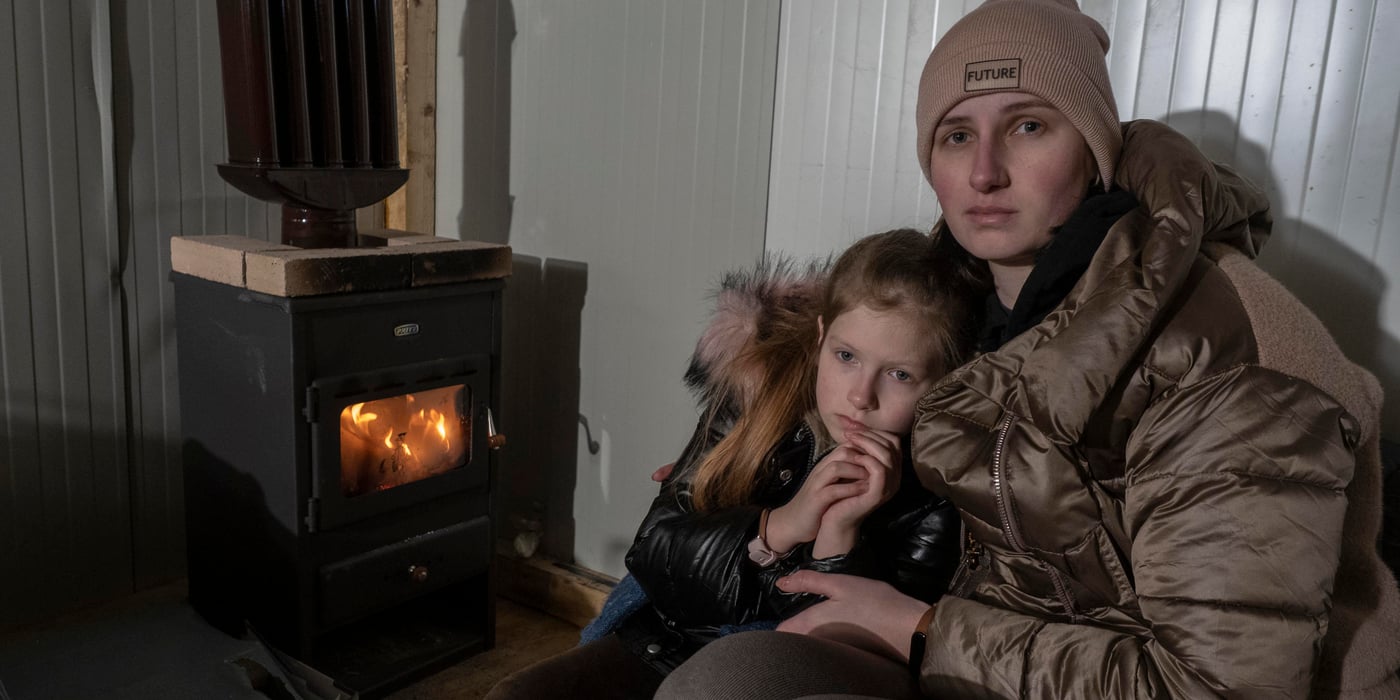
“After being forced to flee from their homes, leaving their loved ones, homes and livelihoods behind, refugees from Ukraine are now being pushed to the brink financially and are struggling to make ends meet,” said Carlo Gherardi, NRC’s regional director for Central and Eastern Europe.
According to NRC’s Hidden Hardship report, seven out of ten (68 per cent) refugees say they are not able to cover basics like food, water, clothing, accommodation, and healthcare. Refugees living in collective centres, and those without regular employment income like mothers with children, pensioners, and people with disabilities, are also facing increased financial pressure after fleeing from war.
Skipping meals and eating less nutritious food was the most common negative trend identified – with around 45 per cent of refugees in Poland, Moldova and Romania taking these measures to reduce living costs. More respondents in Poland and Moldova report having moved to substandard housing to reduce their costs compared to those in Romania, and relatively more people in Moldova – particularly the Roma community – have resorted to borrowing money since they fled Ukraine.
“Hosting governments and communities have been extremely generous, but it’s clear from these findings that a heavy reliance on government and humanitarian assistance as the only form of income is not sustainable,” said Gherardi.
The findings also expose the trauma and brutal reality of war and how it tears families apart, with 44 per cent of respondents saying they had to leave family members behind as they fled Ukraine. “You bear a strong psychological load. You do not know what awaits you tomorrow,” said one female respondent living in Poland.
NRC is calling on host countries and international donors to ensure the continued protection of refugees from Ukraine by developing policies that will prevent people from falling into further hardship.
“There is a clear need for targeted and tailored social protection, continued humanitarian assistance and long-term structural support to ensure refugees can live a dignified life and not suffer further deteriorations in living standards, depletion of personal savings or dependence on aid,” said Gherardi. “One year on and with no end in sight to this conflict, it is the policies that are laid down now that will determine the future of refugees and the communities who host them in neighbouring countries.”
Notes to editors:
- Photos are available for free use here. B-roll is available on request.
Facts and figures:
- In January, NRC and research company Upinion conducted an online survey with refugees from Ukraine in Poland, Moldova and Romania. A total of 1471 respondents engaged with the online survey, 90 per cent of whom were women, particularly mothers with children.
- Most of the respondents (90 per cent) were women, 75 per cent of whom were in the 25 –to 26-year-old category and 20 per cent in the 36-to-45-year category. This is consistent with recent numbers that more than 8 million refugees from Ukraine are residing in Europe, of which the majority consists of women between 30 to 39-years old with children and elderly parents.
- In addition to the online outreach, Upinion and NRC undertook active efforts to include part of the Roma community from Ukraine, given the vulnerabilities that this group has faced and their increased risk of statelessness.
- This study complements NRC’s previous study on push and pull factors for refugees returning to Ukraine in 2022, in order to better understand the situation of people who had decided to stay outside of Ukraine.
- A recent NRC study along with the Polish Center for International Aid (PCPM) also found that policies combined with design issues and challenges in implementation, make it challenging for many Ukrainians to receive adequate support or become self-sufficient in Poland.
- NRC has been assisting people affected by the conflict in Ukraine since 2014. After the February 2022 escalation of armed conflict, NRC significantly scaled up its response inside Ukraine and started programming to support people fleeing the war and seeking safety in Poland, Romania and Moldova. Most of our work supporting refugees in these three countries is with several national partners that are experts in their local contexts.
For more information or to arrange an interview, please contact:
- NRC’s global media hotline on +47 90 56 23 29 or media@nrc.no.
- Global Media Adviser Catriona Loughran on +47 909 25528 or catriona.loughran@nrc.no.
- We have spokespeople available covering the whole region, including Poland, Moldova and on behalf of the Roma community.

